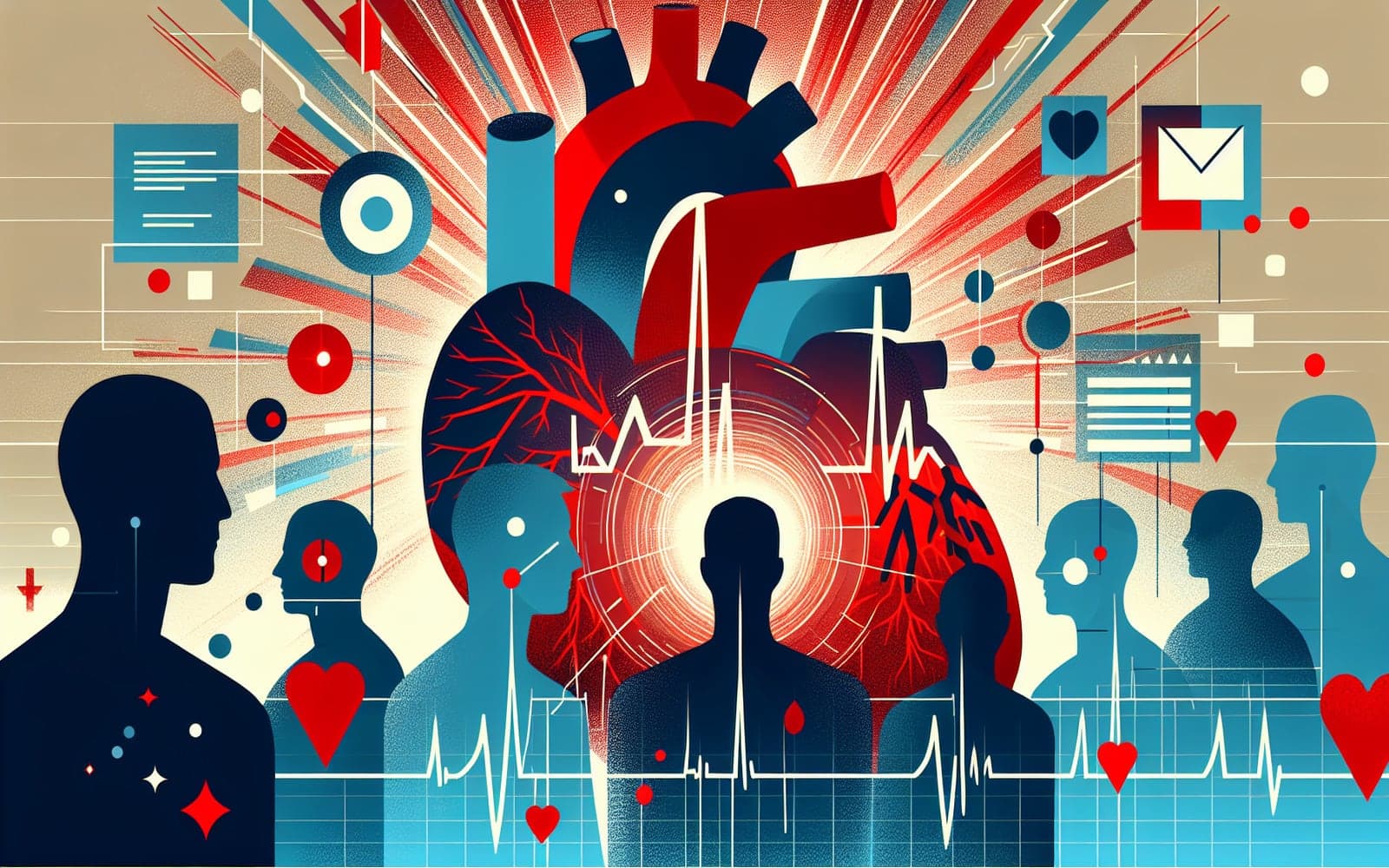ECG Decoded: Your Heart's Electrical Story Revealed!
Published: Jul 25, 2024
Ever wondered what those squiggly lines on an ECG mean? They're actually telling your heart's electrical story! Let's dive into the fascinating world of electrocardiograms and uncover what they reveal about your ticker.
Contents
The Heart's Electrical Symphony
Your heart is like a musical conductor, creating an electrical rhythm that keeps everything in sync. The ECG captures this rhythm, showing how electrical signals flow through different parts of your heart. It's like watching a light show inside your chest, with each beat creating a unique pattern on the ECG.
Decoding the ECG Alphabet
ECGs use a special alphabet to tell your heart's story. The P wave is like the opening act, showing your heart getting ready to beat. The QRS complex is the main event, when your heart squeezes to pump blood. Finally, the T wave is the grand finale, as your heart relaxes and gets ready for the next beat. Each of these waves has a specific shape and timing that doctors use to check your heart health.

The 12-Lead Orchestra
An ECG uses 12 different 'leads' or viewpoints to capture your heart's electrical activity. Think of it like a 12-camera security system, each giving a different angle of what's happening. These leads are placed on your arms, legs, and chest, creating a 3D picture of your heart's electrical patterns. This comprehensive view helps doctors spot any irregularities or problems that might be hiding.
Frequently Asked Questions
Usually just a few minutes!
Not at all, it's completely painless.
It depends on your health, ask your doctor.
They're great, but not perfect for everything.
Key Takeaways
ECGs are a powerful, painless way to peek into your heart's electrical world, offering crucial insights into your cardiovascular health.
Curious about what your heart's electrical story might reveal? Chat with Doctronic to learn more about ECGs and your heart health!Related Articles
References
Mirvis DM, Goldberger AL. Electrocardiography. In: Braunwald's Heart Disease: A Textbook of Cardiovascular Medicine, 12th ed, 2021.
Kligfield P, et al. Recommendations for the standardization and interpretation of the electrocardiogram. Heart Rhythm 2007; 4:394.
Always discuss health information with your healthcare provider.

